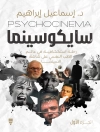In ‘Religion: A Dialogue, ‘ Arthur Schopenhauer engages in a profound philosophical discourse on the nature of religion and its impact on human existence. Written in his characteristic prose, this work exemplifies his pessimistic worldview while intricately weaving together ideas from Eastern and Western philosophical traditions. The dialogue format serves not merely as a vehicle for debate but as a means to juxtapose differing perspectives on the essence of faith, morality, and the human condition. Schopenhauer’s innovative approach reflects the growing intellectual currents of the 19th century, when existential and metaphysical inquiries increasingly challenged conventional beliefs. Arthur Schopenhauer, a pivotal figure in German philosophy, is renowned for his exploration of human suffering and desire. Influenced by Eastern philosophies, especially Buddhism, Schopenhauer’s thoughts on the will to live and the significance of compassion imbue ‘Religion: A Dialogue’ with a distinctive depth that transcends traditional religious discourse. His own struggles with the philosophical implications of suffering and the search for meaning are evident in this text, which seeks to reconceptualize religion beyond institutional boundaries. This work is highly recommended for readers interested in the intersections of philosophy and spirituality. Schopenhauer’s incisive critiques and thought-provoking arguments challenge us to explore the role of religion in providing solace and understanding within a tumultuous world. ‘Religion: A Dialogue’ not only enriches our comprehension of faith but also invites readers to reflect on their existential questions.
A propos de l’auteur
Arthur Schopenhauer (1788–1860) was a seminal German philosopher best known for his work ‘The World as Will and Representation’ (1818), where he characterizes the phenomenal world as the product of a blind, insatiable, and malignant metaphysical will. Schopenhauer’s philosophy is often described as pessimistic for its clear recognition of the limitations inherent in human experience and the torments of desire. Schopenhauer was also among the first thinkers in Western philosophy to share and affirm significant tenets of Eastern philosophy. His thoughtful and aphoristic writing style was influential on later existential and phenomenological thinkers, including Nietzsche and Heidegger. His ideas on aesthetics, morality, and psychology remained impactful, especially evident in ‘Parerga and Paralipomena’ (1851), a collection of essays where themes such as free will and moral responsibility are explored. ‘Religion: A Dialogue’ is another text where Schopenhauer offers his critique of personal and institutionalized religion, often referencing his leanings towards a transcendental understanding of the self that precludes dogmatic structures. Despite having lived much of his life in relative obscurity, Schopenhauer’s philosophy gained prominence posthumously, and he remains an integral part of the Western philosophical canon.












